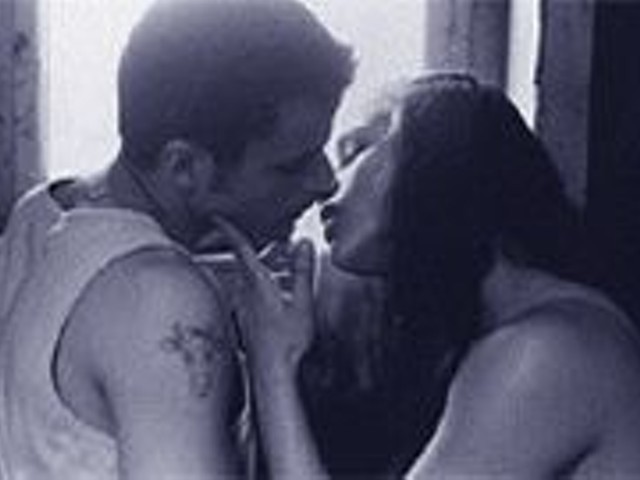Before the arrival of Coach Herman Boone (Denzel Washington), Alexandria's black community "had nothing to call their own but humiliation and despair," we learn during a voice-over narration. Boone, no doubt, will change all that, despite the white conspiracy that wishes to run him out of town and replace him with longtime T.C. Williams High School assistant football coach Bill Yoast (Will Patton, a regular member of the Bruckheimer Players). Yoast, a good servant and ultimately a good man, thought the job was his, as did his formerly all-white team. It's clear from jump that Boone walks on thin ice: If he loses just one game, he's gone.
Boone likes to think of himself as color-blind; he divides the team into offense and defense, not black and white. But he'll go further than that, picking on the black players (especially Petey Jones, played by Clueless' Donald Faison) to prove his point, then drive it through their skulls. He is also at times a rather unlikable character -- coach as unforgiving dictator. When Boone refuses to allow his players to drink water during practice, Yoast reprimands him by telling him that he's flirting with the fine line separating "tough and crazy." It's not Washington's fault that the script allows him no room to make such distinctions.
For a moment, Remember the Titans recalls the opening half of Full Metal Jacket; boys become men on the training grounds (in this case, a lush college campus) where Boone has brought his team members before school and the season start, to learn about and live with each other (and fight with each other, if necessary) so they can play with each other. It doesn't take long for the players to bond. But their friendships are, initially, as fragile as the film's structure and screenplay. Howard has penned a script that's as subtle as a burning cross: People do not speak to each other in Remember the Titans; they speech to each other in sound bites that repeat themselves every few seconds, in case we're too slow to catch the film's message that, um, racism is bad. The film's intentions are noble, but its delivery is ham-fisted and pretentious; you can't deny the message, but you can loathe the messenger without feeling too guilty about it.
Once the players pass through the crucible of basic training, the film slips uneasily into its guise of underdog sports movie; it becomes Wildcats meets Malcolm X -- Hoosiers in cleats. The film's second half -- in which the Titans roll on to victory, endure a crippling injury to a teammate, and watch Boone and Yoast come together as brothers under the pigskin -- is obvious and anticlimactic, the postgame show after a blowout. There will be those who will celebrate Remember the Titans as inspirational and motivational; they will look past its facile façade and think there's depth beneath the glare. They're Bruckheimer's audience, those who confuse manipulative with moving. This is indeed a true story, but it feels like the worst kind of fiction, one in which characters are made of tissue and dialogue is penned on placards.





